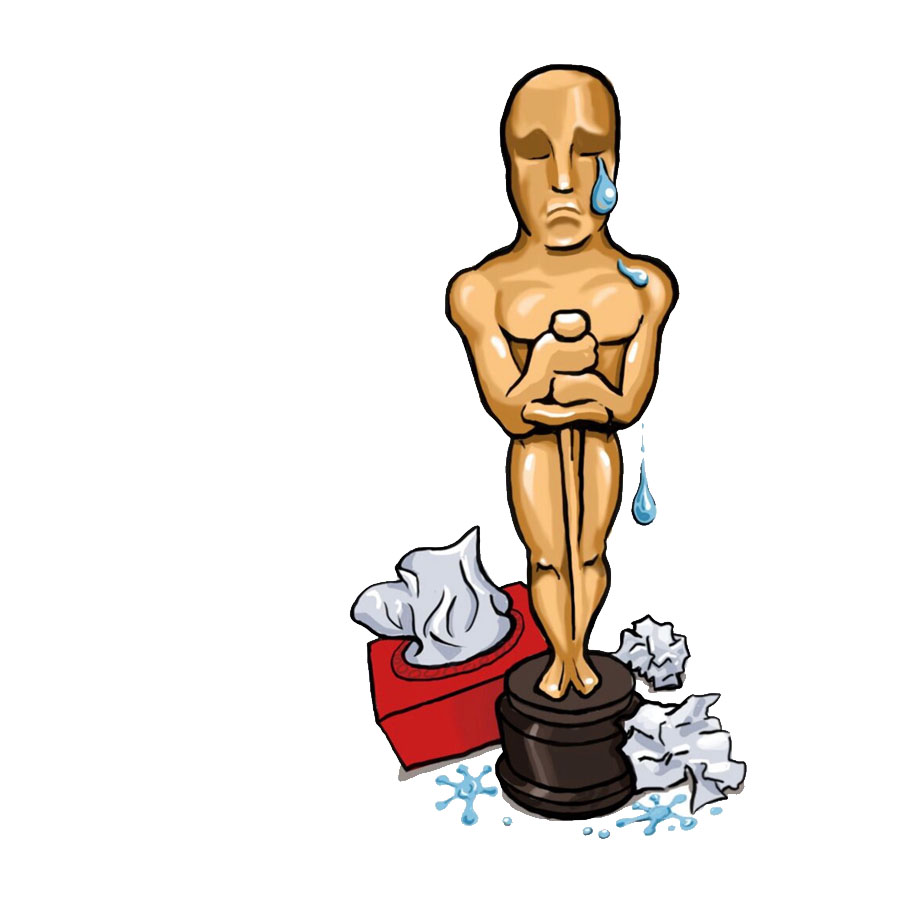Why Legacy Film Companies Who Refuse to Innovate are Doomed to Failure
“Life is a series of hellos and goodbyes. I’m afraid it’s time for goodbye again.”
Bill Joel, “Say Goodbye to Hollywood”
Another of the many examples of companies and industries not innovating for survival are many film companies in Hollywood. In 2019, I was in Hollywood just a few weeks before the 91st Academy Awards. Strolling down Hollywood Boulevard, I passed the legendary Dolby Theater. While the entrance was packed mainly with tourists trying to take a selfie with Spiderman, just a few short weeks later it would be filled with the biggest names in Hollywood, all coming together to celebrate their collective achievements in film, and take their turn walking the iconic red carpet.
As I stopped to take it all in, it occurred to me that in addition to all the glitz and the glamour, there was something else happening on that year’s red carpet, Something Hollywood hadn’t seen before:
A huge, absolutely massive fight.
No, not your typical tabloid, “Celebrity X confronts Celebrity Y about stealing their girlfriend” kind of fight–A much more significant fight, not just for those attending the awards show, but for all of us who love the movies.
A fight against innovation.
In late 2018, streaming giant Netflix made history with its original film Roma, which was the first streaming-only film to be nominated for the “Best Picture” award. In fact, Roma actually racked up 10 nominations in total. And while the binge-kings had plenty to celebrate (as did their streaming competitors Hulu and Amazon, who also received nominations for various original films in several categories that year), many movie industry stalwarts gave Roma a big thumbs down.
For one, there are the major movie chains like AMC and Regal Cinemas, the two largest movie theatres in North America. Both chains offer a pre-awards marathon, where guests can traditionally view ALL of the movies nominated for “Best Picture” for a single fee. But for that year’s slate, Roma was noticeably absent.
Why would Netflix’s beautiful (and deserving) film be left out of their marathons? On the record, they claimed that they didn’t have the rights to play the film in theaters. But according to multiple sources, this wasn’t true; the story was that these giants refused to negotiate any sort of terms with Netflix. For those who prefer their movies on the big screen, Roma had actually been screened in over 100 theaters across the country, proving that Netflix is happy to find medium ground with theater owners.
So, if the rights to screen weren’t the issue, what was? Simple: AMC and Regal did not (and still don’t) want to embrace the inevitable future of their business.
Like so many industries before them, the movie business is at a crossroads. The way movies are consumed is changing at a rapid pace. And for those that have profited off of the “old way” of doing things, their instincts are to fight to protect the way things have traditionally worked.
But here’s the thing: you cannot stop an industry from changing. Whether or not companies want to participate in adapting to their changing industry is their choice, but nothing can stop innovation–t’s like a virus. Once it reaches enough people and finds enough carriers, it will create a tipping point that will affect the masses and cause an epidemic. It’s only a matter of time…
This is certainly not a phenomenon that’s exclusive to film. In fact, I’ve written about it at length before: Innovate or die. Every single company in every single industry on earth faces this challenge at one point or another. Some of the largest companies in America at the turn of the 20th century were leather manufacturers for the horse and buggy industry, almost all of which went bankrupt after dismissing the rise of automobiles. The largest retailer in the world for many, many decades was Sears, who recently filed for bankruptcy as it failed to embrace the era of e-commerce. The first company to invent the digital camera was Kodak, who sat on their invention out of fear it would cannibalize their profitable film sales. Guess what happened to them…
And of course, who could forget the story of when a then industry-leading Blockbuster passed on the chance to buy Netflix for $50 million, a company that is now worth over $150 billion?!
Industry innovation is happening every single day. Yet companies small and large – some of which have been around for a century or more – continue to make the foolish mistake of believing innovation is a “fad,” that it won’t last, or that it won’t apply to them. People have been going to movie theaters since 1905, why would they stop now? We’re too big and too important to fail. People will never stop using our service.
To all the movie industry traditionalists, take a lesson from history: Innovate or die.
Unfortunately, it’s not just the movie theaters that are refusing to embrace this certain future. Movie icons like Steven Spielberg have also come out against the rise in streaming, saying that streaming films “…deserve an Emmy, but not an Oscar. Once you commit to a television format, you’re a TV movie.” By this, he means that Netflix movies have no place at the Academy Awards.
With all due respect to Mr. Spielberg (who is an undisputed legend and expert on all things film), this sentiment feels eerily similar to that of music legend Metallica when they sued the digital music service Napster in 2000. While Metallica’s claims had some merit (it all began with the unauthorized distribution of a Metallica song that was stolen from a recording studio), ultimately the band was on the wrong side of history. The way people consume music has forever changed, and the companies that were first to embrace this (Spotify, Apple) were rewarded handsomely, while those that did not (major record labels, big box music stores) fell behind the curve, many making themselves obsolete in the process.
The movie industry should use music as a case study of what’s to come. Film traditionalists are using a lot of the same arguments that music traditionalists did: the quality of film in theaters is better, people don’t mind paying $15+ for a first-run movie, big star names are most important (CD’s sound better than digital files, people don’t mind paying $15 for a full CD when they just want a few songs, we should focus all our attention on big name bands v. up and coming acts).
But here’s the thing – even if these statements are partially true, it doesn’t matter! The consumption habits of the masses have shifted, and the industry needs to embrace it. They need to innovate or die. Netflix added over 25 million new subscribers in 2018, bringing their worldwide total to 140 million (now over 207 million in 2021). Over 25 million subscribers in a single year! Just to give you a basis of comparison, it took HBO 40 years to add 25 million subscribers to its service.
And of course, we are only talking about Netflix. Hulu and Amazon have been experiencing tremendous growth as well. So, it’s really quite simple: it’s now a matter of when, not if streaming will dominate the movie industry. And for the major players, they need to be thinking about what they can do to innovate, to embrace and partner with the streaming industry, or risk all but certain death…
The movie business should actually take a long hard look at Netflix, as they could learn a thing or two from the company’s own rise. Reed Hastings not only redefined how we consumed movies when he started shipping them to our door, but he did it a second time around when he saw that streaming was going to be the future. Not once but twice Reed saw around the bend, innovated, and is now running one of the biggest companies in the world.
Innovate or die.
Hopefully the Roma/Regal/AMC incident of 2019 will be a short-lived blip on the transition to streaming. And if not – if major industry players fail to see this changing industry and innovate to meet its needs – who knows? Maybe someday soon your “Best Picture” nominee marathon will take place entirely from the comfort of your couch, with the streaming giants producing ALL the best films. Stranger things have certainly happened.
In his 1976 classic “Say Goodbye to Hollywood”, Billy Joel sang “Life is a series of hellos and goodbyes. I’m afraid it’s time for goodbye again. Say goodbye to Hollywood.” Over 40 years later, these words still ring especially true. There’s no better time than now for the movie industry to say goodbye to their old model and say hello to the inevitable future of their industry and embrace streaming and on-demand content. To innovate or die.
The 2019 Academy Awards marked a major shift in the industry tide, one that will forever change the way we produce, consume, and think about one of the world’s most favorite pastimes: the movies.
Say goodbye to Hollywood, indeed.




